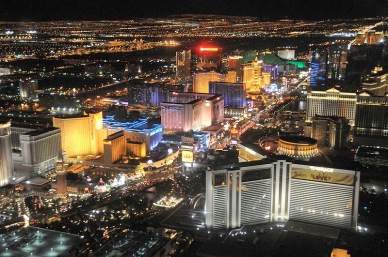The arrogant PR hacks working for the over-hyped Consumer Electronics Show (CES) in Las Vegas are claiming that “the world’s coolest tradeshow is also the greenest.”
But some experts beg to differ, noting that the only real green “alternative” is a virtual event on your computer, and not a traditional in-person event at a totally overcrowded and really smelly convention center.

“The idea that lots of people attending a major conference like CES can be [realistically] positioned as reducing the industry’s carbon footprint is the [ultimate] epitome of ‘spin,’ in my opinion,” industry analyst Paul Ritter, VP of Interactive Media Strategies, told TG Daily in an e-mailed statement
ON24 CMO Denise Persson concurred with Ritter’s assessment, telling us that the high price and inconvenience of air travel (hello TSA gropers!) are “spurring” companies to look for more cost-effective ways to get people together.
“Because green products are being shown at CES, the show is describing itself as a green event. We appreciate their efforts, but, at the end of the day, it’s really not about what’s happening on an exhibit floor.
“[Really], the green benefits of virtual events have [already] been clearly established. Conversely, it is interesting to see that CES is being positioned as a so-called green alternative when it [actually] isn’t. [For example], attendees and exhibitors are still traveling to the show and using towels in their hotel rooms.”
According to Persson, a virtual CES venue would help to significantly decrease the event’s carbon footprint and negative environmental impact.
“Carbon emissions would be reduced by some 179,000 tons – that is the equivalent of the annual impact of around 940,000 trees.
“[In addition], waste would be reduced by over 1.4 million pounds, [while] 136 million air miles would be saved. And the average number of pieces of paper saved by the use of digital documents? Approximately 2 million,” she added.






